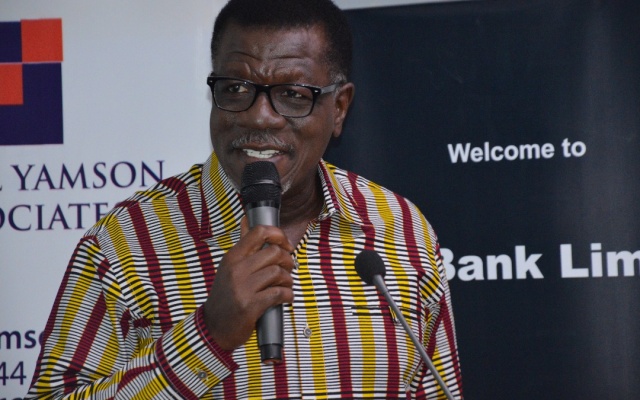
I never took loan from Capital Bank - Pastor Otabil
The General Overseer of the International Central Gospel Church (ICGC), Pastor Mensa Otabil, has said he never took loan or any credit facility from defunct the Capital Bank neither did he act in a manner that led to the collapse of Capital Bank.
The statement of
“The defendant (Otabil) was appointed Chairman of the board in 2009 and in all of his tenure as a Director and Chairman of the Board, he did not apply for, neither was he offered, nor did he receive any loan, overdraft or any credit facility from the plaintiff (defunct Capital Bank).
“The board, under his chairmanship, acted diligently, faithfully and in the best interest of the plaintiff and, therefore, he did not, as Director, use or allow to be used by any director or shareholder related entities to siphon funds belonging to the plaintiff,’’ it said.
Receivers’ suit
On August 14, 2017, the
The BoG allowed the state-owned bank, the GCB Bank, to acquire the two banks in order to protect depositors’ funds and also enable them to stay afloat.
The assets of the banks were then placed in receivership.
Following the revocation, on November 11, 2018, receivers of the bank —
The plaintiffs accused the 15 defendants of mismanaging about GH¢837 million in the coffers of the bank and a GH¢620 million liquidity support given to the bank by the BoG.
The receivers wanted to use the legal action to recover all the money that they claimed the defendants owed the bank.
Among other accusations, the plaintiffs accused the defendants of allocating onto themselves loans amounting to about GH¢482 million, which they had refused to repay, and the use of a non-existent GH¢52.3 million investment certificate to top up the capital of the bank to obtain a universal banking
They further claimed that one of the defendants,
The receivers alleged that it was those ‘illegal’ transfers that
Not loans
Pastor Otabil, in his statement of
With regard to accusations that the shareholders allocated onto themselves GH¢420 million as loans and had refused to pay, Pastor Otabil said the said amount was actually not a loan but ‘just’ debts that the bank incurred during the time it operated as a microfinance company.
The said amount, he said, was still on the books of the company when it became a savings and loans company and finally a bank.
It was his case that the GH¢420 million was ‘impaired investments’ and not ‘non-existent’ investment, as claimed by the receivers.
He contended that in order to help the bank have a better balance book, the board, with the approval of the BoG, allowed shareholders to assume responsibility for the impaired investments and, therefore, they were restructured into a five-year loan
“Upon this, four of the bank’s shareholders signed a memorandum of undertaking in
According to Pastor Otabil, the four shareholders who were to pay the restructured GH¢420 million “impaired investments” were Ato Essien, Oheneba Osei Akoto, Stephen Enchill
Liquidity support
Pastor Otabil also denied claims by the receivers that the defendants mismanaged the GH¢620 million liquidity support that the BoG provided the bank.
According to him, the BoG provided the liquidity support
“The liquidity support attracted an average interest rate of 25.1
He said the board, under his stewardship, did not approve the payment of GH¢27.5 million from the liquidity support as ‘protocol payment’, as had been alleged by the receivers.
It was also his argument that the board, “acting through the relevant sub-committee, followed due process and the disbursement of the liquidity support was done in line with banking regulations, with due regard to Bank of Ghana guidelines’’.
“The second defendant (Pastor Otabil) discharged his duties as a Director and specifically as Chairman of the board faithfully, diligently and to the best of his abilities,’’ the statement of
Writer’s email:
